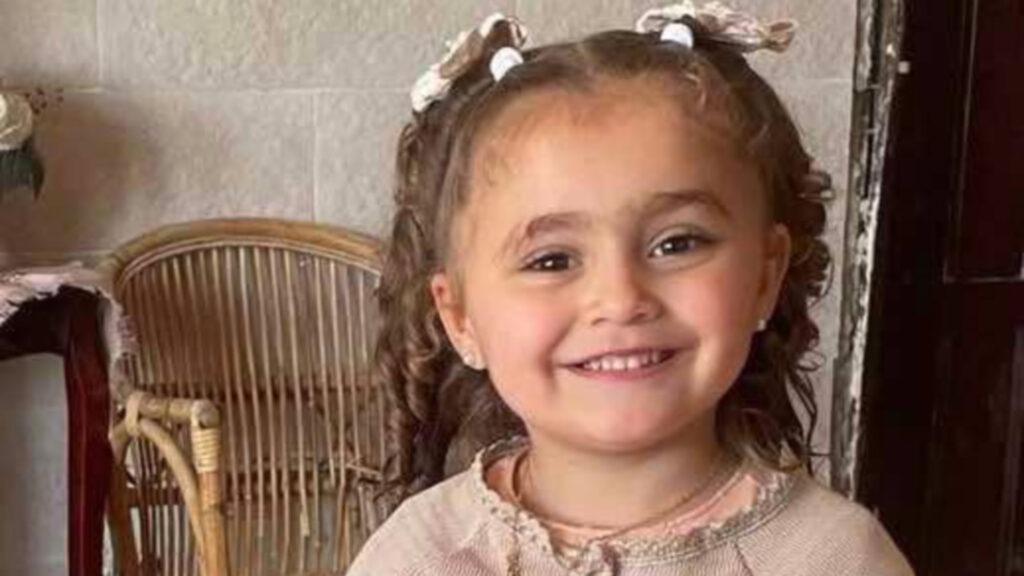After doctors narrowly saved Maram Manaa’s daughter from a life-threatening asthma attack, she pleaded for proper treatment to stop the attacks from returning.
The Palestinian mother of three waited anxiously at her daughter’s bedside in a field hospital in central Gaza.
When the doctor finally returned, he was holding a plastic water bottle.
It had been fashioned into a makeshift spacer, connected to an inhaler far too strong for a child that age.
“This is all we’ve got,” he told her.
New MEE newsletter: Jerusalem Dispatch
Sign up to get the latest insights and analysis on
Israel-Palestine, alongside Turkey Unpacked and other MEE newsletters
With Israel blocking all goods and aid, including medical supplies, from entering Gaza for over two months, doctors are now resorting to desperate alternatives to medically approved devices that have run out.
Manaa says her daughter, three-year-old Mayan, has struggled with asthma for nearly two years. However her condition “worsened drastically” since the war began in October 2023.
“At the start, it was difficult to move her,” the 33-year-old told Middle East Eye.
She stayed in touch with her daughter’s doctor at al-Nasr Hospital in Gaza City, but reaching the hospital became impossible.
“We live in the central area, and the separation between the north and the south meant I couldn’t get her there.”
About a week into its war on Gaza, the Israeli military issued its first expulsion orders, telling residents of Gaza City and the northern Gaza to head south of the Gaza Valley.
Weeks later, it sealed off the north entirely and began targeting anyone trying to cross from the south or centre.
This left countless patients cut off from their doctors, hospitals, and any chance of proper care.
‘I feel helpless’
During one of Mayan’s asthma attacks, she began losing consciousness, and foam started coming out of her mouth, according to her mother.
“I had to rush her to the nearest hospital. We arrived at the very last moment, just in time for her to be put on a ventilator,” she recalled.
Mayan used to rely on Ventolin nebulisers, but as her condition deteriorated, the treatment became nothing more than a temporary fix.
“As a mother, I feel helpless amid the hardship of war, because I have no options besides nebulisers, antibiotics, and temporary painkillers,” Manaa said.
“Even the antibiotics and nebulisers that used to help her now barely work. Her condition keeps getting worse.”
Even after the January ceasefire, when Israeli forces withdrew from the Netzarim corridor and briefly reopened movement between Gaza’s north and south, Manaa still couldn’t take her daughter back to al-Nasr Hospital in Gaza City.
‘When Mayan is sick, she can’t play or move at all, even the slightest effort leaves her breathless’
– Maram Manaa, Palestinian mother
The hospital had been stormed and bombed by Israeli forces. It was no longer operational.
Gaza’s healthcare system has been devastated – hospitals shelled, medical staff targeted, and critical supplies cut off by a prolonged Israeli blockade.
As of April, 27 hospitals across the Strip had been forced out of service by relentless Israeli bombardment, according to the Palestinian Ministry of Health in Gaza.
The blockade has left shelves bare.
At least 40 percent of essential medicines and 60 percent of medical supplies are now out of stock.
Handmade spacer
Desperate for a solution, Manaa recently turned to the American field hospital in Deir al-Balah, in central Gaza, hoping to find proper treatment for her daughter’s worsening condition.
“They gave her asthma medication meant for a different age group, simply because there was no alternative,” she said.
When she asked for a spacer, the doctor returned with a handmade one fashioned from a plastic water bottle.

Why Israel is waging war on Palestinian children
Read More »
“I was shocked. I asked, ‘What is this?’ When they told me it was a substitute for the real device, I wished the ground would open up and swallow me.”
“My daughter, an asthma patient, has to breathe through a bottle to stay alive. Where are our rights as human beings? Where is this child’s right to treatment and safety?”
Manaa requested a medical referral to continue her daughter’s treatment abroad.
But with an overwhelming number of patients and wounded deemed “more urgent” than Mayan, doctors couldn’t add her to the already lengthy medical evacuation list.
“They told me her condition is considered stable compared to tens of thousands of others waiting to be allowed to travel,” she added.
According to The Lancet medical journal, for every direct death caused by military attacks in Gaza, there are around four indirect deaths resulting from hunger, disease, and the collapse of healthcare services.
So far, Israeli forces have directly killed more than 52,500 Palestinians in Gaza, including over 15,000 children, and wounded 118,000 more, according to the Palestinian health ministry.
‘Gasping for air’
Mayan is the twin sister of Jouan, who, despite being healthy, always stops playing whenever Mayan has an asthma attack.
She instinctively sits by her sister’s side, watching her struggle to breathe, and refuses to resume her games until the episode passes.
“When Mayan is sick, she can’t play or move at all, even the slightest effort leaves her breathless,” said Manaa.
Jouan tries to comfort her sister with hugs and kisses, their mother added. She understands that Mayan is unwell and often becomes emotional when she sees her in pain.
“I get sad for both of them,” Manaa explained.
“This isn’t how childhood should be. What mother or father could bear watching their children like this, gasping for air again and again, and be unable to help?”
To prevent the attacks, Manaa gives her child a nebuliser treatment every 15 minutes.
“Mayan chokes and I have to give her this nebuliser, sometimes even every 10 minutes,” she said.
“That’s dangerous for her heart, it’s too much for her small body.
“But there is nothing else I can do.”



